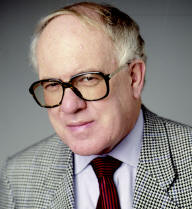The Editor's View May 06
Magazine

John Jenkins' monthly column from Writers' Forum magazine
BBC frowns on the humble fag but it’s okay for your character to snort a line of coke. . .
IF YOU are thinking of writing about a chain-smoking detective or psychologist and hope that your story will be converted into a television series, forget it. The BBC is banning puffers. So what is going to happen to Ian Rankin’s Inspector Rebus, Mortimer’s Rumpole or to a social misfit called Cracker?
As Scotland bans smoking in public places and England prepares to be next how are we going to portray such characters? The government does not want to project such anti-social behaviour.
It is, apparently, all right for your characters to snort a line or two of coke on TV – as in Footballers’ Wives. And it is OK so far for them to get as drunk as a lord – or even drunker as a commoner.
At the last count about 10 per cent of Members of Parliament were smokers and I still have to be convinced that passive smoking is dangerous. Attlee, Wilson and Churchill all went on to a good age.
I don’t smoke and haven’t done so for many years but I regard it as a personal choice and lack the messianic fervour of the true convert. In fact I have never felt like a cigarette or a cigar since the day I gave up – until the government started its peculiar mission to stop the simple pleasure.
But it does seem odd that buggery is now legal at 16, snorting coke and smoking cannabis is fine on television, binge drinking is encouraged and the humble fag is outlawed.
When Peter Hall revives John Osborne’s play Look Back in Anger at the Theatre Royal in Bath in August the actor playing Jimmy Porter will be allowed to smoke on stage.
But not next year.
How long do you think it will be before alcohol goes the same way? By that time of course bestiality and every unnatural sexual act will be portrayed on our main television channels and viewers will be all be stoned out of their minds. Heaven save us from experts and do-gooders.
* * *
OUR cover personality in the March issue, Hilary Spurling, found herself in the news not just because of her superb biography of Matisse but through her talk to the Royal Literary Fund Old-established British organisation which is using substantial new funds from writers' estates for excellent new scheme offering grants to published writers, who act as 'fellows' helping to improve students' writing in higher education institutions. The fellows each have a page and contact details on the website. www.rlf.org.uk
"Anxiety is at the heart of many of the problems students experience with their writing," she reported.
"The students’ essays are muddled and clumsily expressed. They don’t know where to start, how to organise their subject matter or follow a coherent train of thought."
As somebody who has taught and marked degree students in journalism I have to say that in 10 to 20 per cent of cases she is right.
However, at the top end of the scale the best are as good as any of my contemporaries.
And when we look at the excellent entries we receive in our children’s competitions we can only marvel at some remarkable work.
Could the problem be that we are forcing too many students to go to university when 10 to 20 per cent would be better off working on more practical skills?
* * *
A SAD note was the news that Waterstones had decided to close six of its campus stores and the remainder are under threat. The group blamed the use of the internet to buy books and carry out research.
This had led to a downturn in sales. Nobody can blame students who are under increasing financial pressures, although I would have thought that the rise in the number of people attending universities would have compensated for any temporary shortfall.
Random House in Britain reported a great year with a rise in profits and world wide the group reported a 20 per cent increase. It totalled 105 titles hitting the number one spot for best-sellers – including The da Vinci Code.
Meanwhile supermarkets continue to increase their market share, particularly in children’s books.
* * *
NO SURPRISE to learn that William Trevor is among the short-list from an entry of 1,400 for the £15,000 National Short Story prize. Radio 4 will announce the winner on May 15.
Apart from the Man Booker he has won most other prizes and if there was a lifetime achievement award going he would be favourite for that.
* * *
PRE-POTTER you would not have bought shares in Bloomsbury, for your pension fund and you would certainly not have invested any funds to support widows and orphans. But if you did. . .
Hindsight is a wonderful thing. Nigel Newton, chairman of Bloomsbury unveiled the company’s results recently and said Potter would continue to boost profits until 2011.
The seventh and final book in the series is being written by J K now but the backlist, paperbacks and franchises will keep the bandwagon rolling.
Mr Newton revealed profits up 24 per cent on the year and turnover up 29 per cent.
The company has put aside £15m for advances on celebrity titles.
This year the company will publish political diaries from former home secretary David Blunkett and the speeches of Gordon Brown. (Guess which one will sell most.)
Wasn’t Bloomsbury the company which had so much faith in Potter that the first print run was only 500?
John Jenkins, Publisher, Writers' Forum
Read the article about setting up WritersServices which was originally published in Writers' Forum magazine.
© Writers International Ltd 2006. Reproduced from Writers' Forum magazine by kind permission of the editor.
